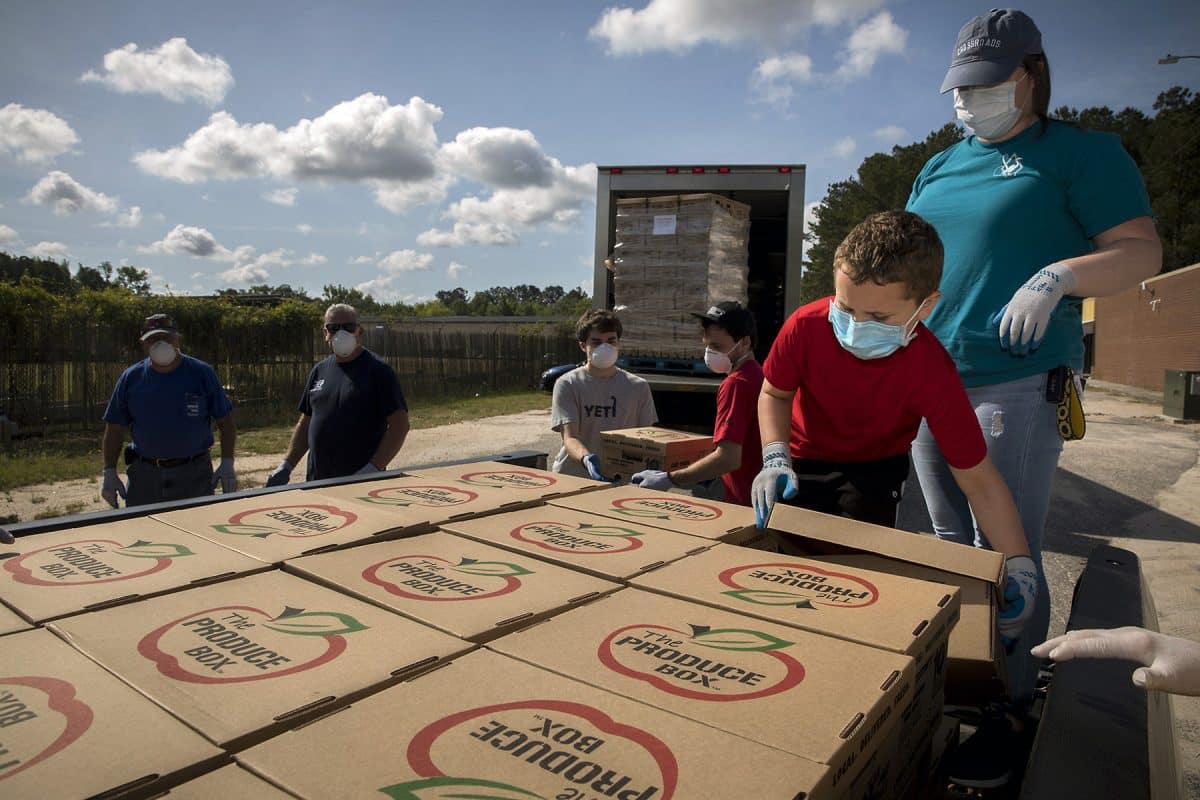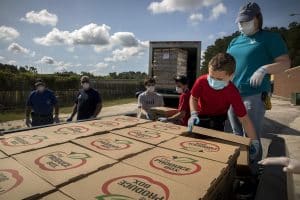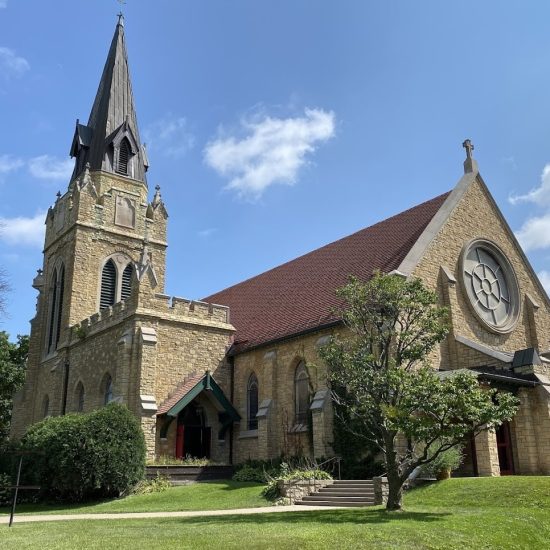
(RNS) — They’re best known for their post-hurricane disaster relief efforts — ripping up homes damaged by floodwaters and rehabilitating them from the studs. But in the wake of the coronavirus pandemic, Baptists on Mission, an auxiliary of the Baptist State Convention of North Carolina, is remaking itself as a food distribution network, delivering boxes of produce to people struggling to get by in a state where more than 1 million people have filed for unemployment benefits.

Baptists on Mission participants sort produce boxes for distribution in Lumberton, North Carolina, in mid-May. (K. Brown/Religion News Service)
Earlier this month, Baptists on Mission won a reimbursable $1.6 million grant from the U.S. Department of Agriculture to deliver fruits and vegetables, milk, cheese and meat as part of its Farmers to Families Food Box Program. The vast majority of that grant — about $1.4 million — will be spent on purchasing food. The remainder will go toward buying or leasing seven refrigerated trucks, paying for gas and other expenses.
The organization is working with volunteers at 185 churches and community centers across the state to help distribute the food — about 8,000 boxes a week.
“We’ve never done anything like this before,” said Richard Brunson, director of Baptists on Mission. “It’s really a blessing. It’s helping us provide a lot of food for people who need it.”
Many North Carolina churches tapped to participate in the program pick up between five and 400 boxes a week for distribution to people in need.
“We do a drive-up pick up in our church parking lot,” said Mike Sowers of First Baptist Church in Buies Creek, North Carolina, 30 miles south of Raleigh. “People don’t have to get out of their cars. We’ll load it up for them.”
Sowers said his church notified nearby elementary, middle, and high schools to let families know about the distribution.
In Charlotte, Ebenezer Baptist Church has been picking up hundreds of boxes a week to distribute among people living in low-income apartments or taking temporary shelter in nearby hotels.
“We’re a hot spot,” said Xzavier Curry, a team leader for missions and disaster relief at Ebenezer Baptist. “A lot of people coming to get food were essential workers, hourly wage workers who have been laid off. They’re waiting for their unemployment. They’re just struggling.”
In the early days of the outbreak, Baptists on Mission had been looking for a way to get involved. Its volunteers, organized through local churches, are trained to tear out damaged homes and rebuild them. It also has a set of mobile kitchens to provide hot meals. But the virus presented a different set of needs.
The reimbursable grant from the USDA, initially for six weeks, may be renewed for up to 24 more weeks, Brunson said. As part of the Coronavirus Farm Assistance Program, the USDA will purchase $461 million in fresh fruits and vegetables, $317 million in dairy products, $258 million in meat products and $175 million in a combination box of produce, dairy or meat products, according to its website. The USDA grants were awarded to 501(c)(3) tax-exempt nonprofits.






